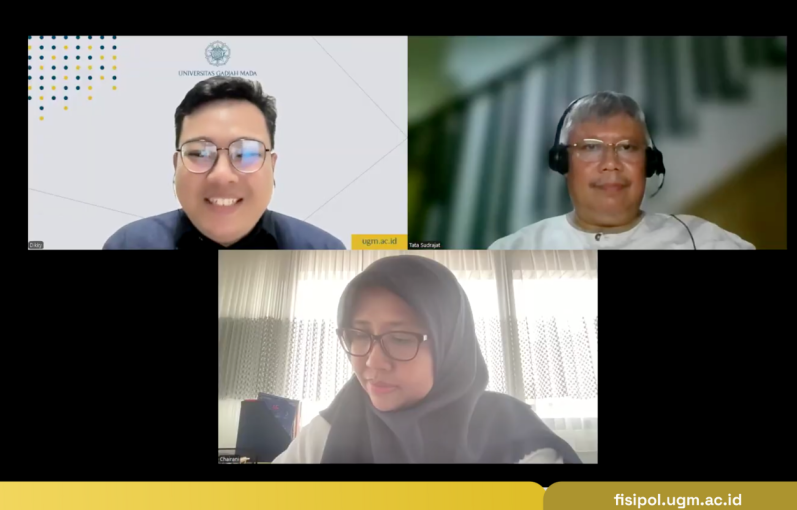
Yogyakarta, May 2nd 2025─The Department of Social Development and Welfare (PSdK) of FISIPOL UGM held the May edition of Social Development Talks entitled “The Future of Children’s Online Interaction: Protection and Freedom in PP Tunas” on Friday (2/5). Held online through the Zoom platform and attended by more than 100 participants, the May edition of Social Development Talks presented two speakers who have expertise in child protection issues, namely Tata Sudrajat (Save the Children Indonesia and PSdK Doctoral Program Student) and Chairani, S.Psi., M.Dist.St (Associate Expert Social Counselor, Policy and Institutional Working Group Coordinator, Directorate of Child Social Rehabilitation, Ministry of Social Affairs of the Republic of Indonesia).
The first session was presented by Tata Sudrajat, who explained the urgency of protecting children online through the regulation of PP Tunas. This regulation regulates the governance of child-friendly electronic system (PSE) operations, including minimum age restrictions in using digital products, services, and features. PP Tunas comes as a solution to the challenges of the rapid development of the internet and its impact on children.
Tata said, “Children, especially in urban areas and girls, have higher access to internet and mobile phone usage. Data from 2023 shows that 74.85% of children aged 7-17 years have accessed the internet independently. Although it brings benefits, this high access also poses risks such as online sexual violence, cyberbullying, negative content, and commercial exploitation of children.”
Tata highlighted the importance of the implementation of Proper Functioning (PLF) indicators and risk assessment of content accessible to children as stipulated in Article 4 Paragraph 2 of PP Tunas. In the ecological system approach to child protection, the role of resilience is important: every child has the potential to rise from adversity, with support from parents and an environment that builds boundaries and understanding. Digital competence is also an important area so that people can adapt safely in the digital era.
Agreeing with the presentation, Chairani also explained that around 22% of Indonesian children are at risk of sexual violence, most of which is related to internet use. While the internet holds many positive potentials, its risks to children need to be seriously managed. She also emphasized the importance of collaborative work from various actors-children, families, schools, pesantren, orphanages, peers, as well as communities and society-to reduce the risks faced by children in the digital world.
The full article can be read through the following link.
